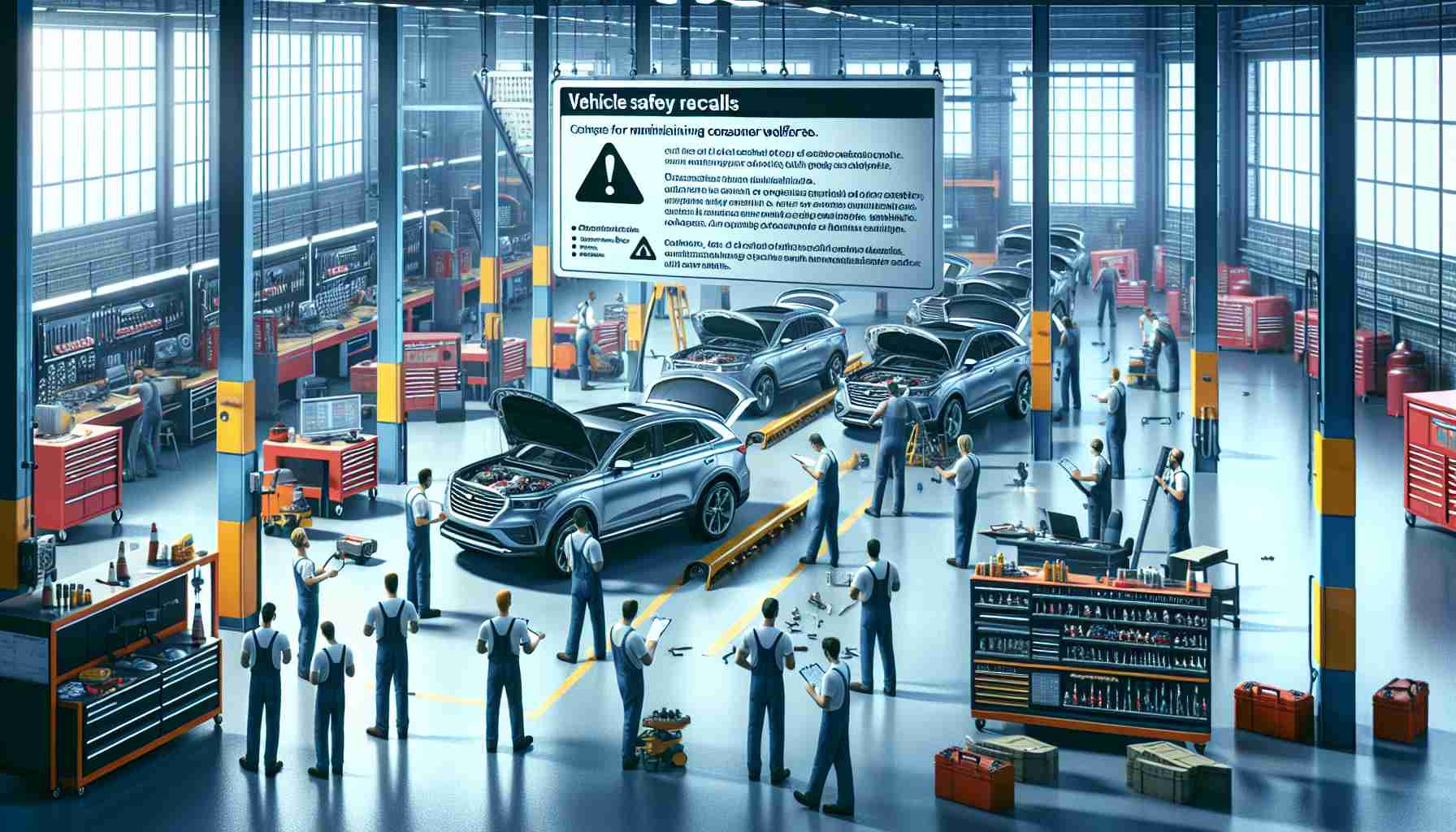Multiple Car Brands Announce Recall Initiatives
Car manufacturers worldwide have initiated recall plans to address safety concerns in a range of vehicle models. These recalls are imperative to ensure the safety and well-being of consumers on the road.
Safety Concerns Addressed
In response to potential safety hazards, car companies like Chery Jaguar Land Rover, Kia, and Toyota are recalling specific car models due to various issues. These include malfunctioning airbags, software problems affecting battery charging, and issues with high-pressure fuel pumps that could lead to fuel leakage and fire risks.
Protecting Consumers
To address these safety concerns, the companies are offering free inspections and replacements of faulty components. By proactively recalling these vehicles, the manufacturers are demonstrating their commitment to consumer safety and satisfaction.
Emergency Measures
In the event of a suspected issue, vehicle owners are advised to cease using their cars immediately and contact authorized dealers for assistance. By following these guidelines, consumers can contribute to a safer driving environment for themselves and others.
Conclusion
Vehicle recalls play a crucial role in maintaining safety standards within the automotive industry. It is essential for car manufacturers to promptly address and rectify any potential safety risks to ensure the well-being of their customers.
Improving Consumer Awareness of Vehicle Safety Recalls
In addition to the proactive measures taken by car manufacturers mentioned in the previous article, it is crucial for consumers to be well-informed about vehicle safety recalls to ensure their own welfare on the roads. Here are some important questions regarding safety recalls and their impact on consumer safety:
1. What information is typically provided in a safety recall notice?
Safety recall notices typically detail the specific issue affecting the vehicle, potential risks involved, and instructions on how consumers can address the problem. It is important for vehicle owners to thoroughly read these notices to understand the urgency and necessary steps to take.
2. How can consumers check if their vehicle is subject to a safety recall?
Consumers can visit the National Highway Traffic Safety Administration (NHTSA) website and enter their vehicle identification number (VIN) to check for any open recalls affecting their specific vehicle. Staying informed about recalls is essential to addressing any safety concerns promptly.
Key Challenges and Controversies:
One of the main challenges associated with vehicle safety recalls is reaching all affected consumers, especially those who may have changed residences or contact information. Ensuring that the recall information reaches every owner is critical to minimizing risks on the road. Additionally, the timing and coordination of recall repairs at authorized dealerships can sometimes lead to delays, affecting the convenience of consumers relying on their vehicles for daily transportation needs.
Advantages:
– Safety recalls protect consumers from potential accidents or injuries caused by defective vehicle components.
– Manufacturers’ prompt response to safety issues demonstrates their commitment to consumer welfare and builds trust among customers.
Disadvantages:
– Vehicle recalls may inconvenience consumers by requiring them to visit dealerships for inspections or repairs.
– In some cases, the availability of replacement parts for a recall may cause delays in completing the necessary repairs, impacting the usability of the vehicle.
For more information on vehicle safety recalls and consumer rights, visit the NHTSA website.
Overall, staying informed about vehicle safety recalls, promptly addressing any identified issues, and following the guidance provided by manufacturers are essential steps in ensuring consumer welfare and maintaining safety standards within the automotive industry.























